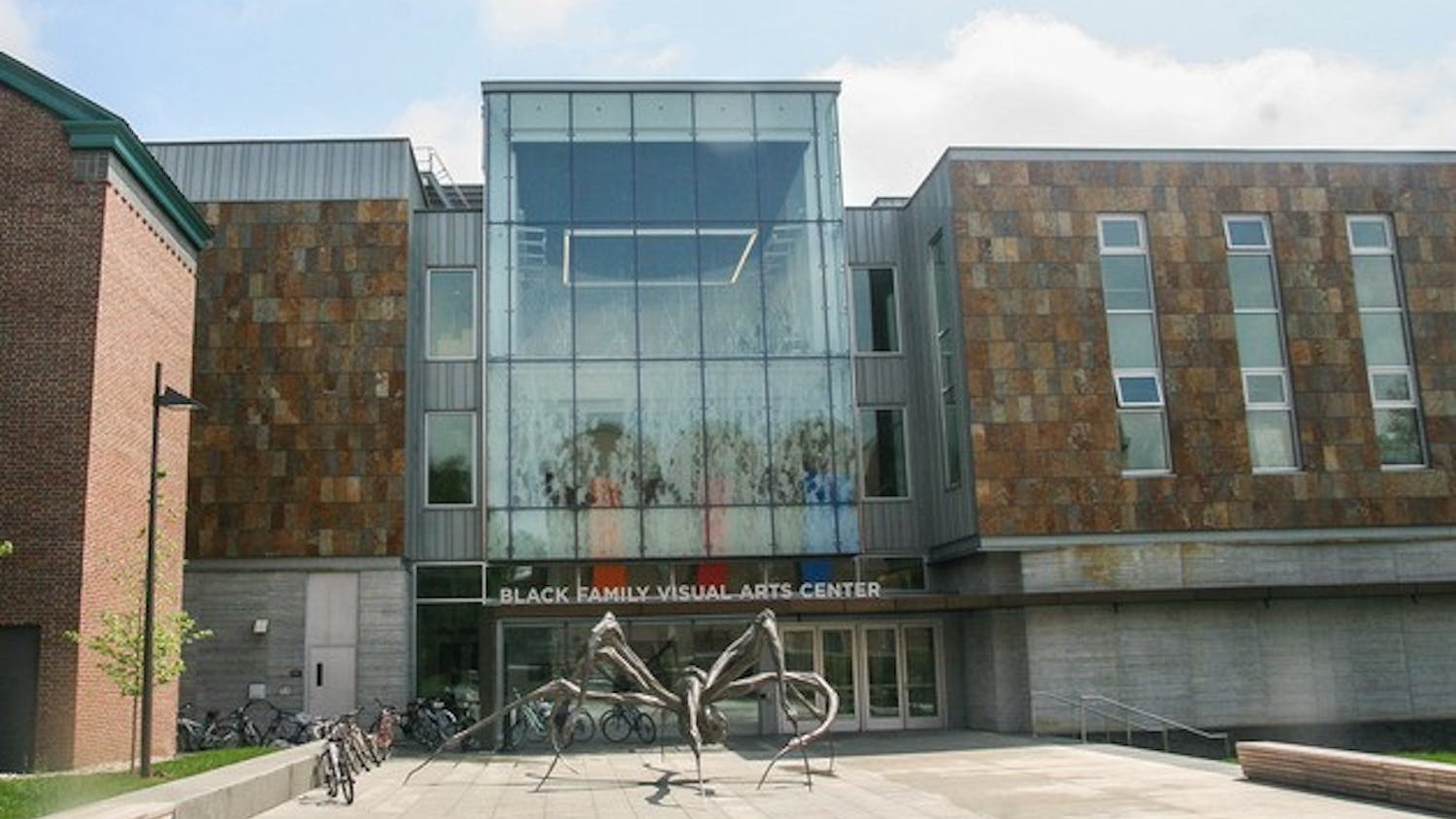Last month, The New York Times reported that Leon Black ’73, prominent College donor and billionaire chairman of Apollo Global Management, had paid convicted sex offender Jeffrey Epstein $158 million between 2012 and 2017, years after Epstein pled guilty to prostitution involving a teenager in 2008. These findings cast a dark shadow over Black’s legacy — a legacy with a high degree of visibility on Dartmouth’s campus.
Focus has now turned to the Black Family Visual Arts Center, with many in the Dartmouth community calling for the building’s name to be changed in light of the recent revelations. The College has stated that it currently has no plans to rename BVAC.
These events have brought new attention to the outdated logic with which the College — and most of its peer institutions — christens its buildings. Instead of honoring distinguished alumni or scholars, the College often uses a different method: allowing donors to buy their names onto buildings and institutions. On examination, this is a bizarre practice. Of all the members of Dartmouth’s alumni body whom we might honor, we by and large choose ones with the deepest pockets. This process should be amended.
At the moment, many campus institutions’ names are more or less sold to the highest bidder. The evidence for this is ubiquitous, from Rauner Special Collections Library — named after Bruce Rauner ’78, the former Republican governor of Illinois with a net worth in the hundreds of millions — to the Irving Institute for Energy and Society, named for the billionaire owner of petro-giant Irving Oil. Rauner and his wife gave $5 million for the library bearing his family name, and the Irving family donated $80 million to fund their own institute. The reason for such a system of nomenclature is clear: It uses vanity to incentivize larger gifts from wealthy donors. This approach perversely memorializes alumni based on wealth alone, thereby exalting extreme wealth accumulation over all other forms of achievement.
This process has led to some confounding outcomes. The Irving Institute, for instance, aims to advance research on sustainable energy, yet it is named for the chairman of a major oil company. The Black Family Visual Arts Center is similarly named for a man who — notwithstanding his prolific art collections — has no background of achievement in the arts. And then there is the new Anonymous Hall, which takes this naming process to its logical — and absurd — extreme.
Instead of auctioning off building names, the College should pay homage to the alumni of which the Dartmouth community is most proud. One can imagine, for example, an arts building named for Golden Globe-winning producer, director and screenwriter Shonda Rhimes ’91, or other prominent alumni in the arts, including Mindy Kaling ’01, Phil Lord ’97 or Chris Miller ’97. The College is clearly capable of such practices, with Webster Hall a prime example of a building named in honor of a renowned alumnus, Daniel Webster, Class of 1801.
Yes, ending the practice of naming buildings for donors would remove a fundraising tool. But we should hope that donors give to the College for something greater than narcissism.
The editorial board consists of opinion staff columnists, the opinion editors, the executive editors and the editor-in-chief.


